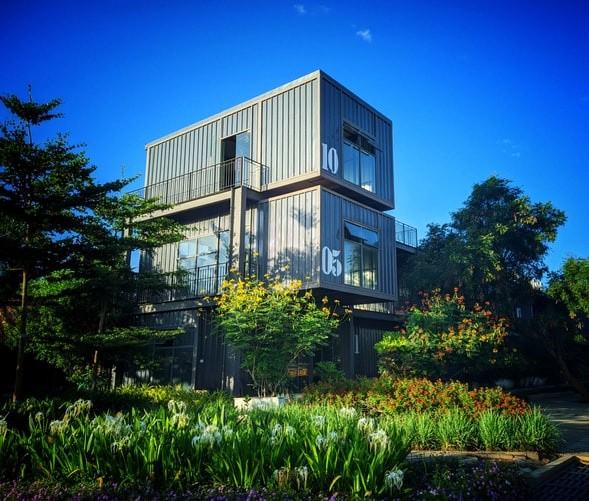
What is a manufactured home? The ultimate buying guide
Building a home is a big investment. If you're on a limited budget and want to avoid the high expense of building a typical single-family house, you should consider purchasing a prefabricated home.
Manufactured homes are an appealing option for first-time buyers. Besides offering comfort, affordability, versatility, environmental sensitivity, and energy efficiency, they cost less than site-built homes. You even have the option to install a fireplace, closets, and stainless steel appliances in your manufactured home.
Getting a choice of land, mortgage and home maintenance of the manufactured homes are totally different from traditional homes. Therefore, it is essential to familiarize yourself with all the associated rules and regulations before choosing a manufactured home. In this article, we will cover all that you need to know when considering purchasing a manufactured home.
What is a Manufactured Home
A manufactured home is built using a steel framework, off-site in a factory. They are usually single-story homes, with each section having a limited size. These homes are built in a controlled environment, then transported in sections to their final location, where they can be assembled on a permanent foundation, such as a lot, or in a park. Each manufactured home section carries a HUD certification label with a unique identification number.
People also get confused between a mobile home, a manufactured home, and a modular home. Here are the differences:
Manufactured Home vs. Mobile Home
A mobile home refers to big RVs or caravans where people live. They are generally stationary but can be transported with a truck. Mobile homes come in a variety of floor plans and amenities, including fully equipped kitchens and bedrooms that are spacious. After June 15, 1976, mobile homes started being referred to as manufactured homes.
Modular Home vs. Manufactured Home
Modular homes are made in factories like manufactured homes. They are typically built in sections that are transported to the site and assembled together on a permanent foundation. They do not have to meet the same HUD standards as manufactured homes, but they must adhere to the same federal, state, and local building codes as site-built homes do.
Things to consider when buying a manufactured home
Here are things that you should consider before purchasing a manufactured home:
1. Location
The first thing you should consider is the location of the manufactured home you want to buy. Developers have been creating luxurious residential communities equipped with recreation centers, pools, gathering spaces, and landscaped grounds. Homeowners can rent or own lots and pay a monthly fee to enjoy all these perks. You should choose a location that fits your lifestyle.
2. Budget
The budget is a major factor in your decision to buy a manufactured home. Many people buy a home as an investment. Manufactured homes also have many of the same financing options as site-built homes. With HUD, you can apply for mortgages from the Federal Housing Authority (FHA). Borrowers and lenders can even negotiate loan terms and agree on the rate and length of the loan.
The maintenance cost for the manufactured home is comparatively lower than that of site-built homes. If you are interested to save a bit more on the maintenance cost, check out these tips to cut down on the maintenance costs.
3. Layout & Design
The layout and the design of the manufactured home you want to buy should be determined by its size. You can add open floor plans, master suites, porches or large windows, kitchen islands, and luxurious bathrooms, among others. The last thing that you want is to get a home that will go out of style.
4. Perform due diligence
Local and state guidelines for manufactured homes can differ from those of site-built homes. The majority of municipalities, however, have revised these outdated rules. Besides local housing regulations, it's important to consider whether the private property will require a well, connection to municipal sewer and water, and other utilities. A registered dealer of manufactured homes usually provides all the resources necessary to streamline the process.
Now let's discuss the pros and cons of getting a Manufacturer's Home.
Pros
- Cost-effective
- Home quality is regulated more strictly than conventionally built homes
- Fast construction, delivery, and installation
- Doesn't require any special foundations
- Basement installation is possible
- Even after installation, it can be dismantled and transported
- Much more energy-efficient than traditional houses
Cons
- Generally viewed with prejudice
- Loses value over time, regardless of its condition
- Can be difficult to sell
- Limits on the number and density of homes
- Regulations on minimum size requirements imposed by the judiciary
After spending a significant amount on your manufacturer's home, you would not want to lose money on repairs if your household items break. In this case, a home warranty can help you avoid going broke when your appliances or house systems need to be repaired or replaced. Check out some home warranty reviews to pick the most suitable plan.
You get more sophisticated manufactured homes than ever before, that are excellent alternatives to conventional home construction. You will spend less money, time, and save yourself from frustration when buying a new manufactured home, and you will get all the features you want.
© 2025 NatureWorldNews.com All rights reserved. Do not reproduce without permission.





